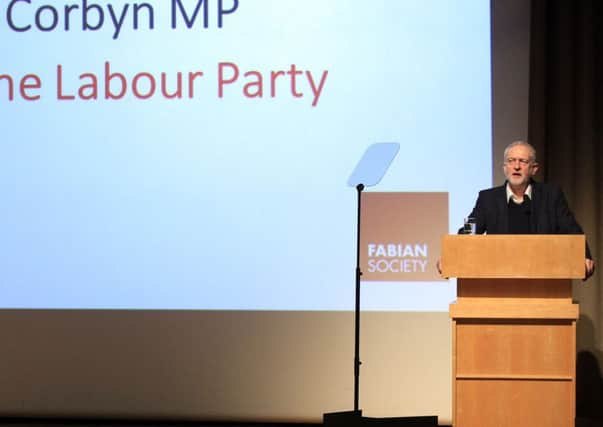Austin Mitchell: Populism - the '˜left behind' have seized on a way to hit back


Britain’s commentariat see it as a threat to the liberal society, like a turd on the table of Downton Abbey. In the US it is portrayed as a Trumpian disaster only slightly less dangerous than nuclear war. In Europe, it endangers the blessings of the euro and ever closer union and produces opportunities for a new Hitler. Even several.
I can agree that populism has its dangers. Its tide can carry the man on the white horse, or the one with yellow hair, to triumph over safer and sounder hands. In power, populist prophets either become dangerous or betray their supporters like Orwell’s pigs turning into nasty humans.
Advertisement
Hide AdAdvertisement
Hide AdInsofar as it is the bar room braggadocio of easy answers and loud talk, populism is impossible to implement, so we must now watch to see if President-elect Donald Trump fulfils his promises or lapses back into the regular Wall Street Republican he was so good at denouncing.
All that provides fun for academics and the commentariat who like to be right after every event. Yet for the practical politician, and particularly for the Labour Party, populism poses more immediate problems. It won’t go away and we either understand that and adjust to it, or fail the protesting people.
Look at how it emerged. Post-war politics was a game of two halves. In the first, the ‘never had it so good’ years. For those at the bottom of the heap the second half was the ‘never had it so bad; years of globalisation, neo-liberalism, austerity and EU membership.
Together all this ended full employment, curtailed welfare, replaced job security with the ‘gig economy’ and dampened the year-by-year improvement in household incomes and living standards.
Advertisement
Hide AdAdvertisement
Hide AdNo wonder a new populism emerged among those left behind. No wonder either that the liberal elite, who’d benefitted from the changes, found so little response to their sermons about the benefits of globalisation and immigration and the prospect that the pain would be worth the gain with a long-term good which somehow never seemed to come.
Labour, the cause of much of the misery and the source of many of the sermons, must now recognise that the populist surge comes from our people: those at the bottom of the heap, those not educated enough to access the joys of a middle class lifestyle; those left behind by economic and social change and those suffering from the rigours and pain of austerity. They need help now and no one else will provide it if Labour doesn’t.
This not only changes the name of the game but the game itself. How does Labour respond to this new world which we have helped to create?
Describing populism is much easier than dealing with it. Clearly announcing that it is wrong, and saying calls for action can’t be implemented, will only exacerbate the alienation and the feelings of impotence which built it in the first place.
Advertisement
Hide AdAdvertisement
Hide AdYet dealing with the dissatisfaction of the people left behind is not only expensive but involves a major change in national priorities. It requires us to compensate the people who have lost out to globalisation, to make beneficiaries pay a fairer share and to boost the parts of the country which have suffered. Either we rebalance the economy and run it in a way that satisfies the mass of our people, or we face perpetual alienation and dissatisfaction, which we’ll then have to excoriate as nasty populism.
Why not learn from history? The ‘never had it so good’ years of post-war growth shifted the social balances from wealth to people to compensate them for the sacrifices of war.
When ordinary people are sacrificed to the needs of wealth, banks and financial institutions and condemned to watching them shower high salaries and big bonuses on themselves, it is a little unrealistic to expect gratitude from those excluded from the bonanza.
The people have been delivered, hands tied, into an age of big corporations, mighty multi-nationals, big, brutal government and greedy self-enrichment. The market prevails over the state which once protected them. The party which once advanced their cause has other things to do, more fashionable fads to follow.
Advertisement
Hide AdAdvertisement
Hide AdSo why is it surprising that the unloved feel they’re ignored and that no one listens to, or speaks for them? Why should we be amazed when they seize the only chance they’ve had to hit out at the forces crushing them? Now they’ve done it, is it Labour’s business to tell them they’re wrong?
Austin Mitchell is the former Labour MP for Grimsby.